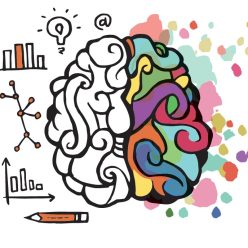
In this spotlight we hear more about LIAS Associate Fellow Dr Diane Levine and Fellow Alumni Professor Linda Theron’s research on trying to understand what helps Africa(n) children and young people cope well when life is hard, including their journey to success with a newly awarded Wellcome Trust Discovery grant.
Sometimes you get to meet researchers doing inspiring work, and sometimes they turn out to be exactly as you hoped they would be. In 2018, when Dr Di Levine (School of Criminology, Sociology and Social Policy) sent an email to Professor Linda Theron (University of Pretoria) whose work on Africa(n)-aligned resilience Di had followed for some years, she wasn’t expecting a response. Imagine her delight, then, when Linda replied positively, and a dialogue began. Linda was thrilled to learn about digital methods from Di and their potential to shed new light on and champion Africa(n)-aligned resilience.
The collaboration began with a successful application to the British Academy/Newton Fund Mobility scheme (£10K). Key to the success of that application was an endorsement from the then newly-formed Leicester Institute for Advanced Studies because of the interdisciplinary nature of the collaboration. It wasn’t grand interdisciplinarity linking distant disciplinary relatives – just two relatively close cousin disciplines working together towards a mutual goal, and more importantly establishing that there were shared values on which to build.
Small pots of money followed, facilitated through internal and external research funding. First, through successful application to the University’s Research England GCRF allocation, focused on exploring links between the air quality and youth resilience in South Africa (£20K), and the extension of the collaboration into physics and epidemiology at Leicester, and to the SAMRC.
Then, just before COVID-19 hit, we were awarded £50,000 from the British Academy’s Humanities and the Social Sciences Tackling Global Challenges scheme. The purpose of this project was to explore the mental health risks faced by emerging adults in African townships. Prior resilience studies had left gaps in understanding the factors influencing resilience. We were privileged to work with 60 young adults from a South African township in producing new insights into the topic, and will be eternally grateful to the British Academy for honourably sticking to the financial commitment, even when the ODA research budget was decimated. We recently held our closing workshop for this project with sixty practitioners, young people, policy, police and civil society organisations, and look forward to the two further journal articles currently under review being published. Keep an eye out for our forthcoming graphic novel based on our findings.
We are now taking a new step in our collaboration journey. Following two co-productive workshops with young people in South Africa and Nigeria about their resilience pathways and depression, a LIAS Fellowship, Linda was successful in leading a Wellcome Trust Discovery Award application (£5M).
Here, we aim to uncover the specific blend of risks and resources predicting depression trajectories among African youth. With Africa poised to have the largest youth population, understanding is urgent, especially as 1 in 5 African youth are ‘not in education, employment, or training’ (NEET), heightening vulnerability to depression. Following 18-24-year-old NEET youth in Nigeria and South Africa (N=1600) for 24 months will reveal the predictors of depression. Further exploration with a subset will offer insights into resilience mechanisms, guiding tailored interventions crucial for African youth’s mental health.
- Selected outputs: Digital stories; Digital Storytelling in Low Resource Settings: a guide for teachers, psychologists and youth workers; African Emerging Adult Resilience: insights from a sample of township youth; Digital Storytelling with South African Youth: a critical reflection.
- Highveld Air Pollution Priority Area in South Africa.
- Sources of mental health: a video by Tsietsi Morobi (5.57 minutes); Sources of mental health: a video by Tsietsi Morobi (2.48 minutes); Sources of mental health: a video by Tsietsi Morobi (12.28 minutes); The inhibitors and enablers of emerging adult COVID-19 mitigation compliance in a township context; Resilience to depression among emerging adults in South Africa: insights from digital diaries (under review); NEET and resilience: The lived experiences of a sample of South African emerging adults (under review).
